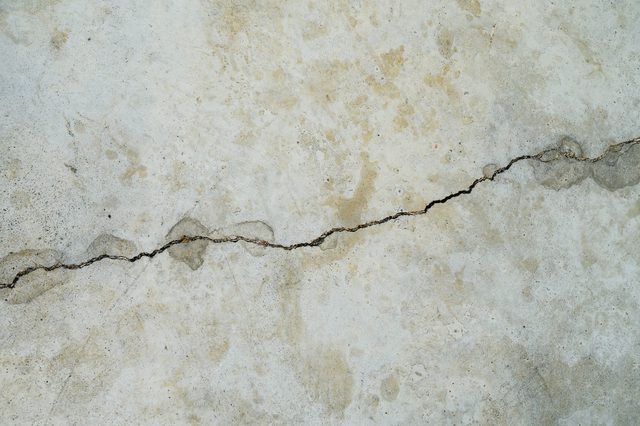What Exactly Is a Slab Leak?
A slab leak is a leak in the water pipes situated beneath your home's concrete foundation. Homes with this type of foundation have plumbing running underneath, and when one of those pipes cracks or corrodes, water begins to seep into the concrete and surrounding areas. Typically, slab leaks fall into two categories:
- Water Supply Leaks – These occur in pressurized pipes that deliver water to your faucets and fixtures.
- Drain Line Leaks – These occur in pipes that carry wastewater out of your home.
Because they happen below the surface, slab leaks can go undetected for long periods. And the longer they go unnoticed, the bigger the damage.
The Risks of Ignoring Slab Leaks
Slab leaks are more than just an inconvenience—they can lead to serious issues, both financially and structurally. Here’s what could happen if you don’t address a slab leak promptly:
- Foundation Damage
Water leaking beneath your home causes the soil around your foundation to shift. As a result, your home’s foundation can crack or even begin to sink. This structural damage can lead to doors that won’t close, windows that won’t open, cracks in the walls, and, in the worst cases, catastrophic foundation failure. - Mold and Mildew Growth
Moisture beneath your home’s foundation creates the perfect environment for mold to grow. Not only can mold spread to your walls and floors, but it can also cause health issues, particularly for those with allergies or respiratory conditions. - Skyrocketing Water Bills
A hidden slab leak can waste hundreds of gallons of water a month without you realizing it. If you’ve noticed a sharp increase in your water bill without changing your habits, you might have a leak hiding somewhere beneath your foundation. - Electrical Dangers
Water from slab leaks can find its way into electrical systems under your home, potentially leading to shorts, electrical fires, or electrocution risks. - Flooring Damage
Carpet, hardwood, and laminate floors can be severely damaged by the moisture from a slab leak. Warping, buckling, and even rotting of flooring materials can occur, requiring expensive repairs.
Spotting a Slab Leak: Warning Signs You Shouldn’t Ignore
While slab leaks are hidden beneath your foundation, they do leave clues. Keep an eye out for these common warning signs:
- Unexplained Water Bill Spikes – If your water bill has suddenly jumped without any significant change in usage, it could point to a slab leak.
- Hot Spots on the Floor – Warm patches on your floor could indicate a leak in your hot water lines beneath the foundation.
- Damp or Wet Spots – If you find wet areas on the floor or carpet with no obvious source, it’s time to investigate further.
- Sounds of Running Water – Hearing water running when everything’s turned off? That could be a sign that water is leaking under the slab.
Cracks in the Walls or Floor – Foundation movement from slab leaks can cause large, noticeable cracks in your walls, floors, or ceilings.
Low Water Pressure – If your water pressure has dropped without an apparent reason, some of the water might be escaping through a slab leak.

How to Prevent Slab Leaks Before They Happen
Preventing slab leaks takes some vigilance and a little proactive care. Follow these tips to keep your home safe from hidden plumbing disasters:
- Get Regular Plumbing Inspections
Having a licensed plumber inspect your system yearly can catch potential issues early. Professionals use tools like electronic leak detection to find leaks before they become full-blown disasters. - Watch Your Water Pressure
High water pressure can strain your pipes, increasing the likelihood of leaks. Installing a water pressure regulator will help keep pressure in the safe range, typically between 40-60 psi. - Replace Aging Pipes
Older pipes made from materials like galvanized steel are more prone to corrosion. If your home has older plumbing, consider replacing it with newer, more durable materials like PEX or copper. - Install Leak Detection Devices
You can install sensors that monitor your plumbing for changes in water flow or pressure. These systems can detect leaks early and even shut off your water automatically if they sense a major issue. - Landscape Carefully
Tree roots can penetrate underground pipes, leading to leaks. Make sure to plant large trees or deep-rooted shrubs far from your foundation, and use root barriers when necessary. - Insulate Vulnerable Pipes
Pipes exposed to extreme temperature changes are more likely to crack. While pipes under a slab are more protected, it's still a good idea to insulate any vulnerable pipes in your home.
What to Do If You Suspect a Slab Leak
If you think there’s a slab leak under your home, take action immediately:
- Turn Off the Water – Shut off your home’s main water supply to prevent further damage.
- Call a Plumber – Contact a professional plumber who specializes in slab leaks. They will use tools like infrared cameras and acoustic sensors to locate the leak without digging up your foundation.
- Discuss Repair Options – Depending on the severity of the leak, repairs can range from pipe re-routing to more invasive options like breaking through the slab to access and fix the damaged pipes.
Slab leaks can quietly cause significant damage to your home, from foundation cracks to mold growth and electrical hazards. The best way to avoid these problems is by staying aware of the warning signs and taking preventive measures. Regular plumbing inspections, monitoring water pressure, and using leak detection systems can save you from expensive repairs down the road. And if you suspect a slab leak, don’t wait—get a professional plumber involved right away. Acting fast can help protect your home and wallet from serious damage.
